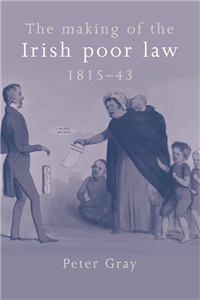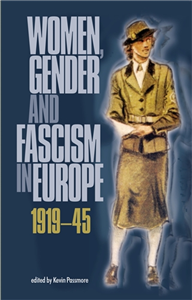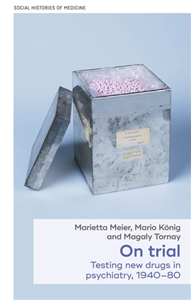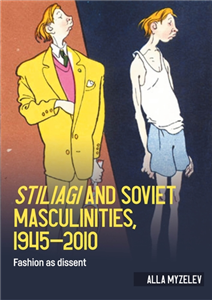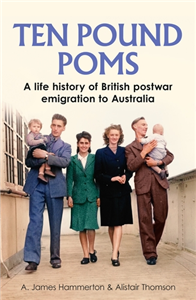Your Search Results
-
Promoted Content
-
Promoted Content
-
 Trusted Partner
Trusted Partner
-
 Trusted Partner
FictionSeptember 2017
Trusted Partner
FictionSeptember 2017A Vision of Battlements
by Anthony Burgess
by Andrew Biswell, Paul Wake
A Vision of Battlements is the first novel by the writer and composer Anthony Burgess, who was born in Manchester in 1917. Set in Gibraltar during the Second World War, the book follows the fortunes of Richard Ennis, an army sergeant and incipient composer who dreams of composing great music and building a new cultural world after the end of the war. Following the example of his literary hero, James Joyce, Burgess takes the structure of his book from Virgil's Aeneid. The result is, like Joyce's Ulysses, a comic rewriting of a classical epic, whose critique of the Army and the postwar settlement is sharp and assured. The Irwell Edition is the first publication of Burgess's forgotten masterpiece since 1965. This new edition includes an introduction and notes by Andrew Biswell, author of a prize-winning biography of Anthony Burgess.
-
 Trusted Partner
Trusted Partner
-
 Trusted Partner
The ArtsOctober 2019
Trusted Partner
The ArtsOctober 2019The never-ending Brief Encounter
by Brian McFarlane
This is a book for all those who have been absorbed and moved by Brief Encounter in the seventy or so years since its first appearance. It explores the central relationship of the film, where two people who fall unexpectedly in love come to realise that there is more to life than self-gratification. Mores have undoubtedly changed, for better or worse, but that essential moral choice has never lost its power. While acknowledging this, the book goes further in an effort to account for the way the film has passed into the wider culture. People born decades after its first appearance are now adept at picking up references to it, whether a black-and-white scene in a much later film or a passing joke about a bald man in a barber's shop.
-
 Trusted Partner
March 2005
Trusted Partner
March 2005Briefwechsel 1930–1940
by Gretel Adorno, Walter Benjamin, Christoph Gödde, Henri Lonitz
Die Korrespondenz zwischen Gretel Adorno und Walter Benjamin, die 1930 einsetzt, aber erst mit Benjamins Emigration nach Frankreich ihre volle Intensität erreicht, ist nicht nur ein spätes Zeugnis des intellektuellen Berlin der zwanziger Jahre, sondern auch das Dokument einer großen Freundschaft, die unabhängig von der Beziehung Benjamins zu Theodor W. Adorno bestand. Während Benjamin, neben seinen Alltagssorgen, insbesondere über jene Projekte schreibt, an denen er in den letzten Jahren seines Lebens mit Hochdruck gearbeitet hat – vor allem über den »Baudelaire« –, war es Gretel Karplus-Adorno, die mit aller Macht versuchte, Benjamin in der Welt zu halten. Sie drängte ihn zur Emigration, berichtete von Adornos Plänen und Blochs Aufenthaltsorten und hielt so die Verbindung zwischen den alten Berliner Freunden und Bekannten aufrecht. Sie half ihm durch regelmäßige Geldüberweisungen über die schlimmsten Zeiten hinweg und organisierte eine finanzielle Unterstützung aus dem anfänglich noch vom Deutschen Reich unabhängigen Saarland. In New York angekommen, versucht sie mit ihren Beschreibungen der Stadt und der Neuankömmlinge, Benjamin nach Amerika zu locken. Aber Benjamin schreibt im Frühjahr 1940: »Wir müssen sehen, unser Bestes in die Briefe zu legen; denn nichts deutet darauf hin, daß der Augenblick unseres Wiedersehens nahe ist.«
-
 Trusted Partner
Humanities & Social SciencesMay 2000
Trusted Partner
Humanities & Social SciencesMay 2000Colonial India and the making of Empire cinema
Image, ideology and Identity
by Prem Chowdhry
This book examines the empire cinema made in Hollywood and Britain during the turbulent 1930s and 1940s.. It shows how the empire cinema constructed the colonial world, its rationale for doing so, and the manner in which such constructions were received by the colonized people.. Unique approach to the subject cinema and Empire from the perspective of the colonised rather than the coloniser.. Vast amount of original research conducted in India contributing to a fresh perspective.. Multifocal attitude which stretches through media and cultural studies, gender, film, imperial history, nationalism and postcolonialism. ;
-
 Trusted Partner
Humanities & Social SciencesMarch 2009
Trusted Partner
Humanities & Social SciencesMarch 2009The making of the Irish poor law, 1815–43
None
by Peter Gray
The making of the Irish poor law, 1815-43 examines the debates preceding and surrounding the 1838 act on the nature of Irish poverty and the responsibilities of society towards it. It traces the various campaigns for a poor law from the later eighteenth century. The nature and internal frictions of the great Irish poor inquiry of 1833-36 are analysed, along with the policy recommendations made by its chair, Archbishop Whately. It considers the aims and limitations of the government's measure and the public reaction to it in Ireland and Britain. Finally, it describes the implementation of the Poor Law between 1838 and 1843 under the controversial direction of George Nicholls. It will be of particular importance to those with a serious interest in the history of social welfare, of Irish social thought and politics, and of British governance in Ireland in the early nineteenth century. ;
-
 Trusted Partner
Humanities & Social SciencesAugust 2003
Trusted Partner
Humanities & Social SciencesAugust 2003Women, gender and fascism in Europe, 1919–45
by Kevin Passmore
What attracts women to far-right movements that appear to denigrate their rights? This question has vexed feminist scholars for decades and has led to many lively debates in the academy. In this context, during the 1980s, the study of women, gender, and fascism in twentieth-century Europe took off, pioneered by historians such as Claudia Koonz and Victoria de Grazia. This volume makes an exciting contribution to the evolving body of work based upon these earlier studies, bringing emerging scholarship on Central and Eastern Europe alongside that of more established Western European historiography on the topic. Women, Gender and Fascism in Europe, 1919-45 features fourteen essays covering Serbia, Croatia, Yugoslavia, Romania, Hungary, Latvia, and Poland in addition to Germany, Italy, France, Spain, and Britain, and a conclusion that pulls together a European-wide perspective. As a whole, the volume provides a compelling comparative examination of this important topic through current research, literature reviews, and dialogue with existing debates. The essays cast new light on questions such as women's responsibility for the collapse of democracy in interwar Europe, the interaction between the women's movement and the extreme right, and the relationships between conceptions of national identity and gender. ;
-
 Trusted Partner
The ArtsApril 2010
Trusted Partner
The ArtsApril 2010Humphrey Jennings
by Keith Beattie, Brian McFarlane, Neil Sinyard
Humphrey Jennings has been described as the only real poet that British cinema has produced. His documentary films are remarkable records of Britain at peace and war, and his range of representational approaches transcended accepted notions of wartime propaganda and revised the strict codes of British documentary film of the 1930s and 1940s. Poet, propagandist, surrealist and documentary filmmaker - Jennings' work embodies an outstanding mix of startling apprehension, personal expression and representational innovation. This book carefully examines and expertly explains the central components of Jennings' most significant films, and considers the relevance of his filmmaking to British cinema and contemporary experience. Films analysed include Spare Time, Words for Battle, Listen to Britain, Fires Were Started, The Silent Village, A Diary for Timothy and Family Portrait. ;
-
 Trusted Partner
MedicineJanuary 2026
Trusted Partner
MedicineJanuary 2026On trial
Testing new drugs in psychiatry, 1940–1980
by Marietta Meier, Mario König, Magaly Tornay
The heroic story of the invention of antidepressants is a key part of the psychopharmaceutical turn. On Trial revolves around one of its pioneers, psychiatrist Roland Kuhn, who practiced in Münsterlingen, a state-run psychiatric hospital in Switzerland. Kuhn became famous for the 'discovery' of the first antidepressant, Tofranil, and more recently notorious for his numerous trials on often unsuspecting patients. Largely based on the extensive and previously inaccessible sources of Kuhn's private archive, the book delves into the early days of industry-sponsored clinical research in psychiatry. It examines how the clinic, patients, doctors, nursing staff, corporations, and authorities interacted in the trials. Conducted from the 1940s to 1980s, the Münsterlingen drug trials are historicised and situated in the period's evolving landscape of experimentation.
-
 Trusted Partner
MedicineJuly 2024
Trusted Partner
MedicineJuly 2024On trial
Testing new drugs in psychiatry, 1940–1980
by Marietta Meier, Magaly Tornay, Mario König
The heroic story of the invention of antidepressants is a key part of the psychopharmaceutical turn. On Trial revolves around one of its pioneers, psychiatrist Roland Kuhn, who practiced in Münsterlingen, a state-run psychiatric hospital in Switzerland. Kuhn became famous for the 'discovery' of the first antidepressant, Tofranil, and more recently notorious for his numerous trials on often unsuspecting patients. Largely based on the extensive and previously inaccessible sources of Kuhn's private archive, the book delves into the early days of industry-sponsored clinical research in psychiatry. It examines how the clinic, patients, doctors, nursing staff, corporations, and authorities interacted in the trials. Conducted from the 1940s to 1980s, the Münsterlingen drug trials are historicised and situated in the period's evolving landscape of experimentation.
-
 Trusted Partner
The ArtsJanuary 2026
Trusted Partner
The ArtsJanuary 2026Stiliagi and Soviet masculinities, 1945–2010
Fashion as dissent
by Alla Myzelev
This book provides an in-depth analysis of the Stiliagi, the Soviet Union's pioneering youth subculture from the late 1940s to the early 1960s. Characterized by their distinctive Western-influenced fashion, affinity for jazz, and resistance to Soviet ideological conformity, the Stiliagi represented a significant cultural shift in post-war Soviet society. The book examines how this subculture, through its embrace of alternative masculinities and nonconformist behaviours, challenged prevailing social norms and influenced Soviet cinema, theatre, and broader cultural discourse. Drawing on rigorous research, the book situates the Stiliagi within the broader context of Soviet and Post-Soviet history, arguing that their legacy persisted well beyond their absorption into mainstream culture. Essential reading for scholars of Soviet history, cultural studies, and subcultural movements, this work offers a nuanced understanding of the Stiliagi's enduring impact on Soviet identity and cultural resistance.
-
 Trusted Partner
Humanities & Social SciencesMay 2020
Trusted Partner
Humanities & Social SciencesMay 2020Lawyers for the poor
Legal advice, voluntary action and citizenship in England, 1890–1990
by Katherine Bradley
From the 1890s onwards, social reformers, volunteer lawyers, and politicians increasingly came to see access to affordable or free legal advice as a critical part of helping working-class people uphold their rights with landlords, employers, and retailers - and, from the 1940s, with the welfare state. Whilst a state scheme was launched in 1949, it was never fully implemented and help from a lawyer remained out of the reach of many people. Lawyers for the poor is the first full-length study of the development of voluntary action and mutual schemes to make the law more accessible, and the pressure put on the legal profession and governments to bring in further reforms. It offers new insights of the role of access to the law in shaping ideas about citizenship and civil rights in the twentieth century.
-
 Trusted Partner
Humanities & Social SciencesDecember 2020
Trusted Partner
Humanities & Social SciencesDecember 2020This is your hour
Christian intellectuals in Britain and the Crisis of Europe, 1937–49
by John Carter Wood
In the 1930s and 1940s - amid the crises of totalitarianism, war and a perceived cultural collapse in the democratic West - a high-profile group of mostly Christian intellectuals met to map out 'middle ways' through the 'age of extremes'. Led by the missionary and ecumenist Joseph H. Oldham, the group included prominent writers, thinkers and activists such as T. S. Eliot, John Middleton Murry, Karl Mannheim, John Baillie, Alec Vidler, H. A. Hodges, Christopher Dawson, Kathleen Bliss and Michael Polanyi. The 'Oldham group' saw faith as a uniquely powerful resource for social and cultural renewal, and it represents a fascinating case study of efforts to renew freedom in a dramatic confrontation with totalitarianism. The group's story will appeal to those interested in the cultural history of the Second World War and the issue of applying faith to the 'modern' social order.
-
 Trusted Partner
Literature & Literary StudiesOctober 2009
Trusted Partner
Literature & Literary StudiesOctober 2009Edwin Morgan
Inventions of modernity
by Colin Nicholson
Edwin Morgan is Scotland's major living poet, and Inventions of modernity was the first book-length study of his work. Since the 1940s Morgan's poetry has been carving out an alternative to the conventional evolutions from Modernism to Postmodernism, creating instead a substantial body of writing that ranges from the sublime to the hilarious. Instinctively at odds with the literary politics of the Pound-Eliot axis that remained influential deep into the twentieth century, Morgan develops instead a radical and libertarian poetics in an encyclopaedia of forms; from Anglo-Saxon metre through sonnet-sequences to concrete poems, and including gay poetry, science fiction verse and prize-winning translations into both English and Scots from numerous languages. This authoritative volume is of interest to students, teachers and academic researchers involved with strategies of reading, with cultural studies, with the politics of literary history and with gay and transgressive writing. ;
-
 Trusted Partner
Humanities & Social SciencesJanuary 2025
Trusted Partner
Humanities & Social SciencesJanuary 2025‘Ten Pound Poms’
A life history of British postwar emigration to Australia
by A. James Hammerton, Alistair Thomson, Becca Parkinson
A riveting history of the 'Ten Pound Poms', a wave of British citizens who migrated to Australia and New Zealand after the Second World War. Between the 1940s and 1970s, more than a million Britons migrated to Australia. They were the famous 'Ten Pound Poms' and this is their story. The authors draw on a vast trove of letters, diaries and personal photographs, as well as hundreds of interviews with former migrants, to offer original insights into key historical themes. They explore people's motivations for emigrating, gender relations and family dynamics, the clashing experience of the 'very familiar and awfully strange', homesickness and the personal and national identities of both settlers and returnees. Filled with fascinating testimonies that shed light on migrant life histories, 'Ten Pound Poms' will engage readers interested in British and Australian migration history and intrigued about the power of migrant memories for individuals, families and nations.
-
 Trusted Partner
The ArtsJune 2021
Trusted Partner
The ArtsJune 2021The war that won't die
The Spanish Civil War in cinema
by David Archibald
The war that won't die charts the changing nature of cinematic depictions of the Spanish Civil War. In 1936, a significant number of artists, filmmakers and writers - from George Orwell and Pablo Picasso to Joris Ivens and Joan Miró - rallied to support the country's democratically-elected Republican government. The arts have played an important role in shaping popular understandings of the Spanish Civil War and this book examines the specific role cinema has played in this process. The book's focus is on fictional feature films produced within Spain and beyond its borders between the 1940s and the early years of the twenty-first century - including Hollywood blockbusters, East European films, the work of the avant garde in Paris and films produced under Franco's censorial dictatorship. The book will appeal to scholars and students of Film, Media and Hispanic Studies, but also to historians and, indeed, anyone interested in why the Spanish Civil War remains such a contested political topic.
-
 Trusted Partner
The ArtsJanuary 2019
Trusted Partner
The ArtsJanuary 2019The war that won't die
The Spanish Civil War in cinema
by David Archibald
The war that won't die charts the changing nature of cinematic depictions of the Spanish Civil War. In 1936, a significant number of artists, filmmakers and writers - from George Orwell and Pablo Picasso to Joris Ivens and Joan Miró - rallied to support the country's democratically-elected Republican government. The arts have played an important role in shaping popular understandings of the Spanish Civil War and this book examines the specific role cinema has played in this process. The book's focus is on fictional feature films produced within Spain and beyond its borders between the 1940s and the early years of the twenty-first century - including Hollywood blockbusters, East European films, the work of the avant garde in Paris and films produced under Franco's censorial dictatorship. The book will appeal to scholars and students of Film, Media and Hispanic Studies, but also to historians and, indeed, anyone interested in why the Spanish Civil War remains such a contested political topic.












